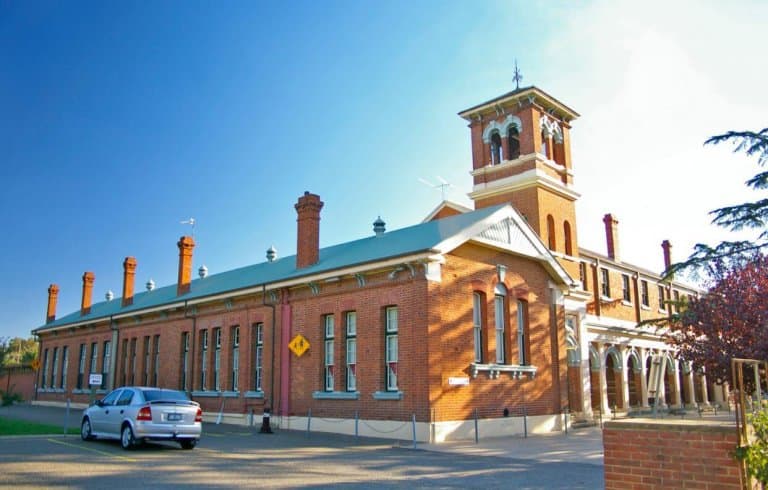How to Choose the Right Local School for Your Child

But, picking out a school is no easy task. In a way, education choice is like picking out your child's 'start in life.'
Page Navigation
Why you can trust our advice
For lots of different reasons, many families only homeschool for specific years or due to external circumstances are forced to return to public or private schools. That is the primary reason why this guide was created.
Homeschool Base’s locus is home education. In our opinion, home education is a lifestyle that encompasses afterschooling, unschooling, homeschooling, teaching, parenting, and so much more. Although some of our authors sing praises about home education as the best option for their families, our intent is never to throw public/private schools "under the bus."
Many families with children in public education also want to be involved in their child's education. Therefore, we cover and support afterschooling, parenting, and all aspects of home education. We know that homeschooling simply is not feasible for every family. Our mission is to help families provide the best possible education to their children, and so we are actively engaged in topics like this.
This article will be a general guide to picking out the best local school for your child and family.
If you've already narrowed your school choice down to public and private, you should also read this article.
If you have not yet explored all the possible education options for your child, you should check out this article.
Fundamental Truths About Education
First off, there is no such thing as a one-size-fits-all answer. Every child is unique. Every family is different. What works for one family may not work the same for another. What one child loves maybe forcefully resisted by another.
Second, realize it or not, your child's education is substantially influenced and determined by what happens in your home. If you, the parent, are actively engaged in your child's education and encourage, stimulate, and teach them when they are at home, everything will be easier.
Third, school choice is a difficult decision because every metric used for comparison can be flawed. When it comes down to your top few picks, making the “right” decision may not be the “end all be all.”
From personal experience, I know a family that voluntarily moved to a new school district to attend one of the best public schools in the state. This district had higher taxes, and the family was forced to make additional financial sacrifices, but they absolutely loved the school, and their kid excelled. I also know another family that lived in the same district the first family moved away from. Their children are succeeding in the public school the first family was never willing to try.
Always focus on doing what is best for your family.
How to Research and Discover Your Local Schools
To make the best decision, start researching as soon as possible. The following 5 steps will help you begin the research process. Don’t skip these!
1. Start networking
Talk to your friends with children enrolled in a local school. Get their opinions and feedback. This will immediately give you an inside scoop on some schools, and you'll learn about most of the common school choices. Try to find families that are similar to yours.
Try to find families that have experienced multiple forms of education, or gone to more than one school. The advice that comes from parents who send their child to only one school will be limited in scope. They may hate the school where they may love the school. Either way, they haven't attended an alternative which might cast new light on their current school.
2. Research local schools
Then, start researching the schools in your area to discover local options that weren't mentioned when you did your networking. You'll also need to take note of your local school districts. At times, some families will even move to attend a school in a different district.
3. Figure out of private school fees are feasible
Because private schools are never free, the first thing you should do is make a list of available private schools and figure out your options for paying tuition. Some of the schools will offer financial aid on a need-based system, sometimes there are discounts for church members, and each school will have their own payment system.
4. Charter school lotteries
If you are interested in a charter school, there will most likely be a lottery. This means you will not be guaranteed a spot until after the lottery, and you certainly cannot count on receiving a spot. Make sure to research the schools early on so that you can actually plan ahead.
5. Research Montessori and Waldorf schools
Depending on the way you researched schools in your local district, you may or may not have missed some of the alternative options. Make sure to look up Montessori and Waldorf schools among the many other types of alternative schools.
Bonus: Have you considered homeschooling?
Most people reading this article need help picking between local schools. So, you've probably decided against homeschooling. Nevertheless, if you’ve never considered homeschooling, now would be a splendid time to consider it. Depending on your state, there are different legal requirements and options.
Umbrella schools
Umbrella schools are very popular in some states and take care of the administration, legalities, and paperwork. There are also complete curriculum packages and online solutions that allow parents to reduce the amount of time necessary and still reap the benefits and flexibility of home education.
How to Make the Right Decision Between Local Schools
You’re starting to have a good understanding of the local options and some inside scoops on schools. Maybe you’ve already had the chance to tour a few. Great!
Start with an organized list of pros and cons

A diagram for picking the right diagram (just for fun!)
Ideally, make a pros and cons chart. As a parent, you may feel that you are above those petty hand-drawn diagrams. In reality, the best way to make accurate, precise, and quick comparisons is by writing down all of the data.
Because every school district is unique, this isn't something we can do for you. The following sections offer helpful advice for narrowing down your school choice.
1. Avoid deciding based on average school test scores or rank
Remember that every child is different. Although a school that boasts high test scores may seem like the best option, it may not be a perfect fit for your child. At the same time, just because a school may have high test scores does not mean the school is actually filled with gifted students.
Averaging scores never tells the whole truth.
Think about three basic scenarios.
- One school with students all performing exactly the same.
- One school where 5% of the students perform extremely well and the other 95% perform much below average.
- And a final school where 90% of the pupils performed extremely well and 10% extremely poorly.
The school environments in each of these three examples would be extremely different for the students attending although the averaged test scores tell the same story.
2. Fantastic teachers may be well disguised
A school may have excellent teachers and still “produce” only average, or below average, students. Education starts at home. Additionally, homework is completed at home. Less than ideal home conditions and environments may not allow certain students to excel.
This means that a below average school may have the best teachers in the entire district, it just doesn't show up on test results and paper comparisons.
3. Your choice isn't permanent
You will be able to change schools in the future (although it's harder to recover from some decisions, such as uprooting your family and moving to a new district).
There's a famous quote is usually attributed to Benjamin Franklin that goes along these lines, "There are a few things that are certain, there will be death, taxes, and private schools will be more expensive." There is no guarantee that a more expensive school will be anything other than expensive.
4. Take all advice with a grain of salt
Make sure to always take advice with a grain of salt. Everyone loves to offer advice. Just because someone offers advice doesn't necessarily mean that they have lots of experience or that they are qualified. Always seek a second, third, and fourth opinion. Even then, this collection of opinions may still be slanted.
5. Financial impacts

Make sure to thoroughly consider expenses, especially when weighing the pros and cons of private school vs. public school. Even if you can make it work, it may have a way impact other financial goals such as your child's higher education, the education of your other children, ability to afford extracurricular activities, or your retirement. These are extremely subjective and complex effects and consequences.
Your essential role
In every scenario (except for boarding school), you will be able to help your child make the most of their education.
It's up to you.
Afterschooling is growing in popularity. Choosing a public school does not mean you don't value your child's education -- in many scenarios, it is the only viable option.
When considering multiple options, don't forget that there are many paths to the top of the mountain. It is highly unlikely that your child will be doomed if you make the wrong decision. Successful, brilliant, and famous innovators have emerged from every type of school.
If there is a will, there is a way.







It sounds like a good idea to make a list of private schools to see what your tuition paying options are. My daughter is very bored in her school right now because she's one of the smartest in her class, so I want to put her into a private school which will hopefully challenge her. I'll have to figure out what the best private schools in my area are and make that list.